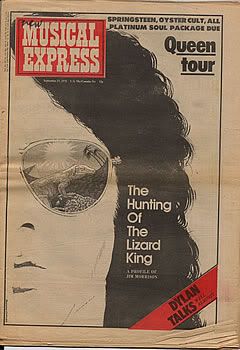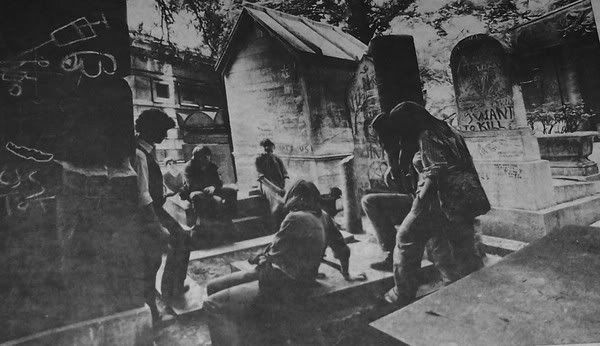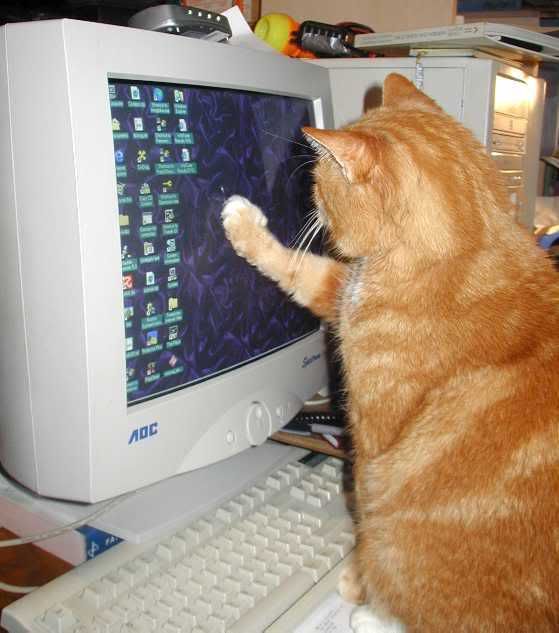Post by darkstar on Jan 20, 2005 20:02:58 GMT
The Hunting Of The Lizard King by Mick Farren
September 27 and October 4 1975
New Musical Express


I only saw Jim Morrison twice.
Each time, even off stage, he gave the appearance of a
man performing his own private movie. Maybe in some
secluded place he was able to drop the self-inflicted
role; maybe the Morrison movie occupied his waking
hours.
Certainly all the evidence shows that while there was even
one person around to watch, Morrison performed. The
first time I was him was at the Roundhouse. It was a
Middle Earth all-night spectacular that starred the
Doors and the Jefferson Airplane - the most ambitious
project yet tackled by the flower punks and the
psychedelic wheeler-dealers who rode herd on what was
laughingly called London's underground rock
business.
It was clear right from the first that there was no
love lost been the Doors and the Airplane. In the
first wave of back-stage gossip came the news that a
high-level tactical battle had been raging all afternoon
over who should go on first. The Doors had won - by
the strategic use of stage lighting. Their roadies
had arranged the Doors' 20-odd Acoustic speakers,
meticulously matched black, rexine-covered monoliths crowned
by baby-blue high frequency horn, like the pillars
at a Nuremburg rally. The Airplane had little
choice, with their somewhat ragbag assortment of
hippie-built cabinets, to work around the Doors' fait accompi.
Both bands had obviously approached the London concert
determined to emerge as The Stars. The Airplane had brought
the entire Joshua Light Show from the Fillmore West.
The Doors simply had Jim. They did, however, have one
other advantage. Granada TV was making a film of the
Doors and Granada TV's money was intrumental in the
staging of the show. This was the Doors ultimate answer.
If anyone didn't give them what they wanted, they
could cause a great deal of trouble.
It was typical of Morrison's public personna that, as the Doors
performance got under way, he slowly began to turn on the
camera crew. At first he posed for the three big
cumbersome outside broadcast cameras, then his narcissism
started to plunge over the edge. He dodged them nimbly,
jumping out of range each time they tried to focus on
him. Finally, with a grand gesture of childish
petulance, he flung out a dramatic arm and demanded the TV
lights should be shut off. He pulled the audience in
behind as he warmed to the role of the star punk giving
the finger to the old folks' medium. A storm of
catcalls and booing broke out. The lights were finally
extingished, and the rest of the film had to be shot in murky
half darkness.
During the second performance Morrison went a stage further. He
actually turned on the audience, interrupting the music with a
stream of random obsenities until it seemed that he produced what he
considered a postive reaction from the crowd. Once that was
achieved, he got back to business as usual. It was then
that the idea first occured to me that there was
something inside Morrison that forced him to push any
relationship to the ultimate. With both individuals and
audience he appeared to need to see how much they could
take. To define, by practical experiment, how much
abuse anyone would put up with before they ceased to
adore him. It was this willingness to go to the limit
that set Morrison apart from the commond herd of
posing, macho rock frontmen. It also created what was
possibly the greatest problem. As he discovered the
depth's of public masochism, just how much abuse these
people were willing to accept without revolting, he
became disgusted.
The second time I saw Jim Morrison it became
clear that his major victim was himself. It was
backstage at the Isle Of Wight Festival. He looked a mess.
A full beard and a cossack style smock couldn't
disguise the fact that he was grossly overweight. He had
been herded into a corner by John Sebastian and was
clutching a brandy, grunting responses, and looking for a
way to escape the tie-dyed collection of platitudes
as Sebastian gushed on about how "far out it all
was." Morrison looked desperate. Not just to get away
from the current situation. He seemed to have the
desperation of someone who knows his control is slipping
away.
The feeling was reinforced when he came out on the
stage. He was a shamling parody of himself. It was as
though he knew his performance wasn't worthy of the huge
crowds ritual adulation, that if they applauded so
easily their devotion could only be worthy of
contempt.
Over the years the memory becomes shaky. I can't quite
remember if Jimi Hendrix followed the Doors or the Doors
followed Hendrix. I was certainly drunk. Two things are
clear, however, they both played during the evening,
when the campfires of that particularily strife-torn
festival blazed across the hillside. They both play badly,
by their own standards, and they both seemed
sickened when the crowd received a medicore set as though
it was a triumph. In a matter of months, both men
were dead.
JAMES JAMES MORRISON MORRISON
COMMONLY KNOW AS JIM.
In the Jim Morrison Story, whom
would they get to play Jim as a boy? Whom for that
matter would they get to play Jim as a man? In the
magazine story there is hardly enough space for the
interviews with old school chums. That has o be left to He
Who Writes The Book. The Morrison early life has to
be presented as one of those continous dissolve
montages, like the News on the March sequence from "Citizen
Kane." No sooner has one scene appeared before it
dissolves for the next.
It's a boy, Mrs. Morrison, it's
a boy. The baby cradled by proud parents, mother
adoring, father dignified by gold braid. The child grows
into a sensitive, large eyed Freddy Bartholomew kind
of brat with dark curly hair. We see him playing
baseball, running through the fields. The picture darkens.
He gazes pensively at the rain on the window. Fights
with father, confrontation, running again, this time
through the rain. This isn't joy, now it's
flight.
September 27 and October 4 1975
New Musical Express


I only saw Jim Morrison twice.
Each time, even off stage, he gave the appearance of a
man performing his own private movie. Maybe in some
secluded place he was able to drop the self-inflicted
role; maybe the Morrison movie occupied his waking
hours.
Certainly all the evidence shows that while there was even
one person around to watch, Morrison performed. The
first time I was him was at the Roundhouse. It was a
Middle Earth all-night spectacular that starred the
Doors and the Jefferson Airplane - the most ambitious
project yet tackled by the flower punks and the
psychedelic wheeler-dealers who rode herd on what was
laughingly called London's underground rock
business.
It was clear right from the first that there was no
love lost been the Doors and the Airplane. In the
first wave of back-stage gossip came the news that a
high-level tactical battle had been raging all afternoon
over who should go on first. The Doors had won - by
the strategic use of stage lighting. Their roadies
had arranged the Doors' 20-odd Acoustic speakers,
meticulously matched black, rexine-covered monoliths crowned
by baby-blue high frequency horn, like the pillars
at a Nuremburg rally. The Airplane had little
choice, with their somewhat ragbag assortment of
hippie-built cabinets, to work around the Doors' fait accompi.
Both bands had obviously approached the London concert
determined to emerge as The Stars. The Airplane had brought
the entire Joshua Light Show from the Fillmore West.
The Doors simply had Jim. They did, however, have one
other advantage. Granada TV was making a film of the
Doors and Granada TV's money was intrumental in the
staging of the show. This was the Doors ultimate answer.
If anyone didn't give them what they wanted, they
could cause a great deal of trouble.
It was typical of Morrison's public personna that, as the Doors
performance got under way, he slowly began to turn on the
camera crew. At first he posed for the three big
cumbersome outside broadcast cameras, then his narcissism
started to plunge over the edge. He dodged them nimbly,
jumping out of range each time they tried to focus on
him. Finally, with a grand gesture of childish
petulance, he flung out a dramatic arm and demanded the TV
lights should be shut off. He pulled the audience in
behind as he warmed to the role of the star punk giving
the finger to the old folks' medium. A storm of
catcalls and booing broke out. The lights were finally
extingished, and the rest of the film had to be shot in murky
half darkness.
During the second performance Morrison went a stage further. He
actually turned on the audience, interrupting the music with a
stream of random obsenities until it seemed that he produced what he
considered a postive reaction from the crowd. Once that was
achieved, he got back to business as usual. It was then
that the idea first occured to me that there was
something inside Morrison that forced him to push any
relationship to the ultimate. With both individuals and
audience he appeared to need to see how much they could
take. To define, by practical experiment, how much
abuse anyone would put up with before they ceased to
adore him. It was this willingness to go to the limit
that set Morrison apart from the commond herd of
posing, macho rock frontmen. It also created what was
possibly the greatest problem. As he discovered the
depth's of public masochism, just how much abuse these
people were willing to accept without revolting, he
became disgusted.
The second time I saw Jim Morrison it became
clear that his major victim was himself. It was
backstage at the Isle Of Wight Festival. He looked a mess.
A full beard and a cossack style smock couldn't
disguise the fact that he was grossly overweight. He had
been herded into a corner by John Sebastian and was
clutching a brandy, grunting responses, and looking for a
way to escape the tie-dyed collection of platitudes
as Sebastian gushed on about how "far out it all
was." Morrison looked desperate. Not just to get away
from the current situation. He seemed to have the
desperation of someone who knows his control is slipping
away.
The feeling was reinforced when he came out on the
stage. He was a shamling parody of himself. It was as
though he knew his performance wasn't worthy of the huge
crowds ritual adulation, that if they applauded so
easily their devotion could only be worthy of
contempt.
Over the years the memory becomes shaky. I can't quite
remember if Jimi Hendrix followed the Doors or the Doors
followed Hendrix. I was certainly drunk. Two things are
clear, however, they both played during the evening,
when the campfires of that particularily strife-torn
festival blazed across the hillside. They both play badly,
by their own standards, and they both seemed
sickened when the crowd received a medicore set as though
it was a triumph. In a matter of months, both men
were dead.
JAMES JAMES MORRISON MORRISON
COMMONLY KNOW AS JIM.
In the Jim Morrison Story, whom
would they get to play Jim as a boy? Whom for that
matter would they get to play Jim as a man? In the
magazine story there is hardly enough space for the
interviews with old school chums. That has o be left to He
Who Writes The Book. The Morrison early life has to
be presented as one of those continous dissolve
montages, like the News on the March sequence from "Citizen
Kane." No sooner has one scene appeared before it
dissolves for the next.
It's a boy, Mrs. Morrison, it's
a boy. The baby cradled by proud parents, mother
adoring, father dignified by gold braid. The child grows
into a sensitive, large eyed Freddy Bartholomew kind
of brat with dark curly hair. We see him playing
baseball, running through the fields. The picture darkens.
He gazes pensively at the rain on the window. Fights
with father, confrontation, running again, this time
through the rain. This isn't joy, now it's
flight.




